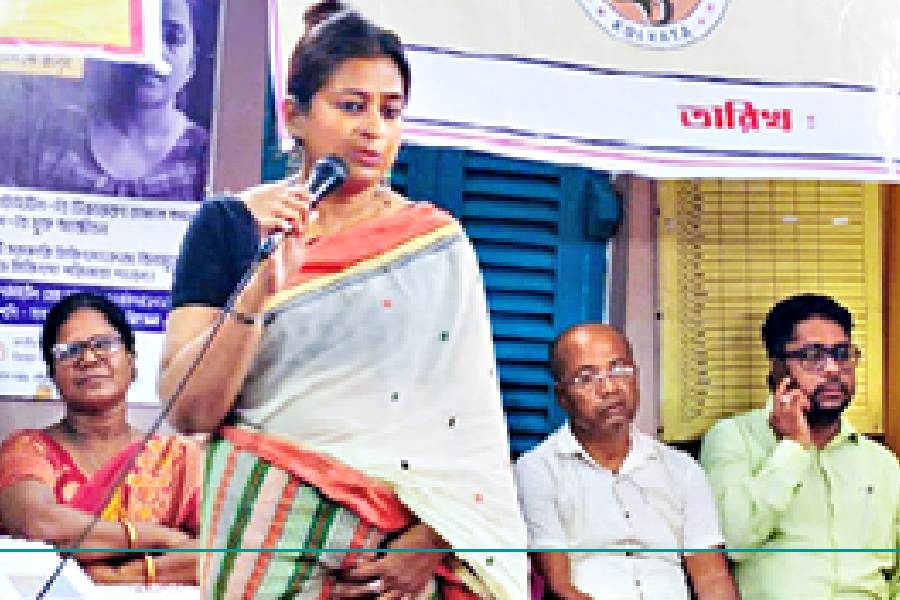Gatar khatiye khai, shramik er adhikar chai (We labour with our bodies, we demand labour rights).
The slogan was mentioned several times at Durbar Mahila Samannay Committee’s office in Sonagachhi on a wet Monday afternoon.
The slogan has also made its way on an academic book cover that looks at sex workers’ rights, their fight against HIV/AIDS and their work to stop trafficking. Such is the power of the slogan that the audience at Durbar, mostly sex workers, applauded each time it was uttered.
They had congregated to remember their father figure Smarajit Jana on his birth anniversary and also to celebrate the launch of a book that records their fight for their rights.
Prophylactic Rights: Sex Work, HIV/AIDS and Anti-trafficking in India, published by Cambridge University Press, records the history of sex workers’ movement for labour rights through an ethnographic study done at Sonagachhi, a red-light district in north Calcutta.
“Every monsoon, since 2011, I have been coming here to work. I thought I would work on HIV alone. But it was Swarajit Jana who told me that if I wanted to do an in-depth study, I should also look at anti-trafficking issues,” said author Simanti Dasgupta.
In 1992, the All India Institute of Hygiene and Public Health identified sex workers as a high-risk group and launched the Sexually Transmitted Diseases/HIV Intervention Project (SHIP) at Sonagachhi.
SHIP recruited sex workers as peer educators to introduce the community to the threat of HIV/AIDS and promote the use of condoms as a prophylactic device. SHIP, under the stewardship of Jana, achieved remarkable success in reducing new HIV infections through the use of condoms. WHO described the initiative as the “successful Sonagachhi model”.
Dasgupta plays on the word prophylactic in the title of her book. “I would think about condom all the time. Once at Durbar, I was about to trip on the stairs carrying a box of condoms. This prophylactic device not just stops AIDS but also brings you your rights in society,” Simanti told her audience.
Sociologist Prashanta Roy, Simanti’s professor at the erstwhile Presidency College, lauded his student for having empathy with the subjects of her work.
“While working on this book, she has had to have an intimate view of your lives so she could bring the story of your movement to a larger audience, but she has remained very empathetic to you,” he said.
Simanti was able to interview the first group of peer educators in Sonagachhi. “I have tried to capture all your effort in building up this movement and the achievement of recognition of sex work as labour.”
Purnima Chatterjee of Durbar, who worked on anti-trafficking, said: “While doing this work, I have got a lot of satisfaction. I have been able to send so many girls home. People have applauded my work but I have not got any love from my home.”










